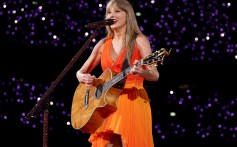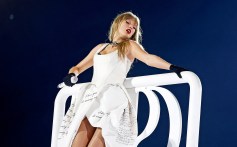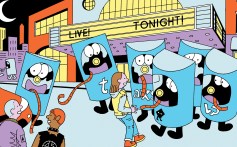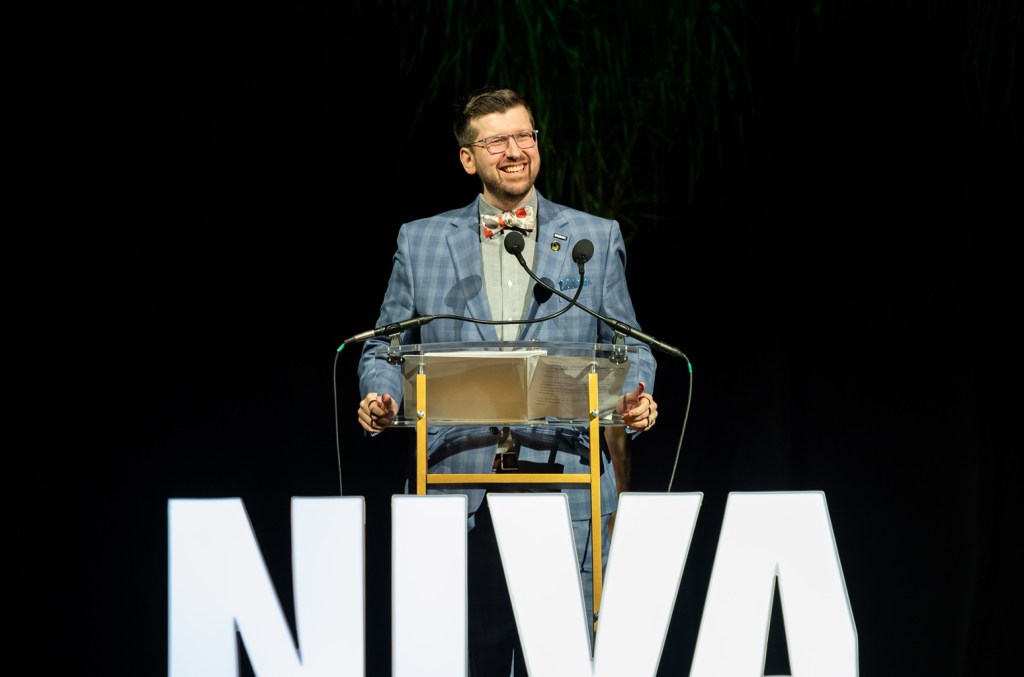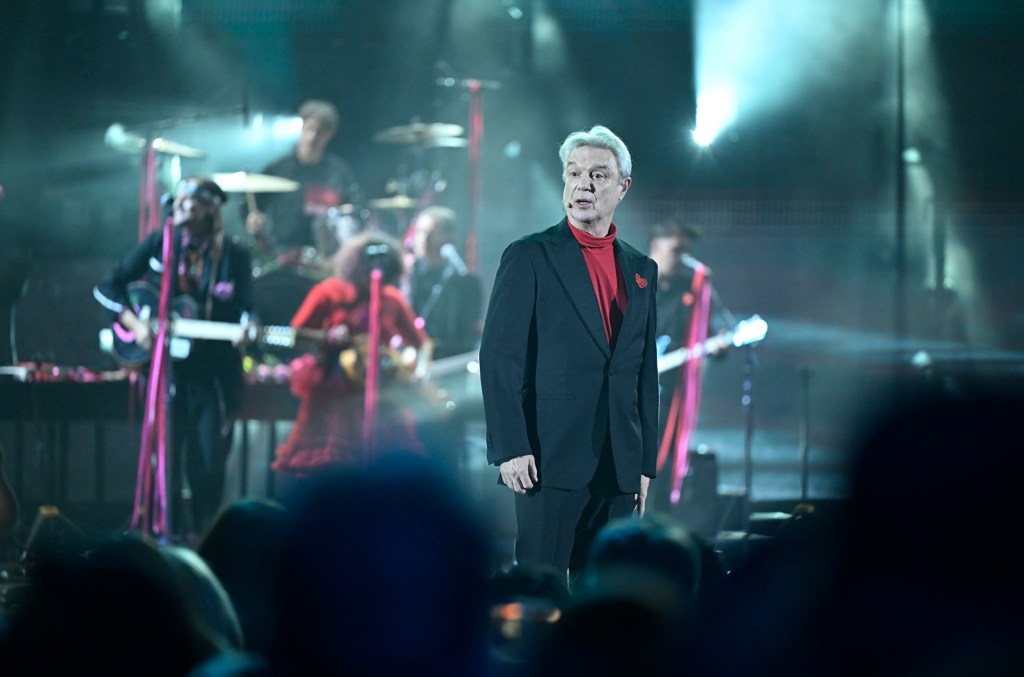Ticketing
Trending on Billboard
Key Investment Group (KIG) is asking a federal judge to throw out a recently filed Federal Trade Commission (FTC) lawsuit against the ticket resale company over alleged violations of the Better Online Ticket Sales (BOTS) Act.
In August, the FTC filed suit against KIG, alleging the company violated the BOTS Act when it purchased thousands of Taylor Swift tickets for her 2023-2024 Eras Tour and resold them for more than $1 million in profit. The lawsuit was filed days before a similar complaint was filed against Ticketmaster for allegedly refusing to enforce its own rules against scalpers and allowing unrestricted resale on its platform. Since then, Ticketmaster has made changes to its resale policies and, like KIG, has argued that the FTC is misapplying the BOTS Act.
Related
The FTC sued KIG in August, alleging the Colorado-based ticket resale operation used networks of accounts, IP masking, SIM boxes and other technical tools to evade Ticketmaster’s ticket-purchasing limits and acquire hundreds of high-demand tickets for resale. The agency claims these tactics “circumvented” the ticketing giant’s security controls in violation of the BOTS Act.
KIG is the first of the two firms to file a motion to dismiss. In a sweeping 36-page missive filed on Nov. 24, KIG attorney Bezalel A. Stern with law firm Manatt, Phelps and Phillips argues that the FTC’s complaint attempts to regulate long-established broker practices — like using multiple IP addresses to buy tickets or operating dozens of Ticketmaster accounts — that do not involve bots.
“KIG does not use bots. KIG does not circumvent any security measure,” the company tells the court, arguing the FTC is attempting to impose an unprecedented interpretation of the law that contradicts the law’s legislative history and the FTC’s own prior guidance.
Related
Stern stresses that the BOTS Act was explicitly drafted to stop “malicious computer code” that lets bot operators overwhelm ticketing websites and jump ahead of human buyers. KIG argues that since it employs human buyers — not automated scripts — the law does not apply. “Without the use of bots, there can be no BOTS Act violation,” KIG claims in the filing.
KIG’s brief also turns the FTC’s own evidence against it. In its lawsuit, the FTC included Ticketmaster records showing the ticketing company tracked KIG’s accounts and purchasing practices — even those created under alternate names — and knowingly allowed them. In a 2024 Ticketmaster email cited by the FTC, a Ticketmaster representative tells KIG that purchases made across different accounts are “within guidelines” so long as each individual account respects the posted per-account ticket limit. KIG’s motion argues that email destroys the FTC’s theory of unlawful “circumvention,” because ticket brokers at KIG cannot “avoid,” “evade” or “deceive” Ticketmaster’s controls when Ticketmaster explicitly authorizes the behavior.
KIG also highlights a contradiction between the FTC’s case against it and the agency’s separate September lawsuit against Ticketmaster and Live Nation. In that parallel case, the FTC alleges the ticketing company “knowingly allows, and in fact encourages, brokers to use multiple Ticketmaster accounts.” KIG argues the FTC cannot simultaneously claim Ticketmaster encourages multi-account purchasing while accusing KIG of “circumventing” the very same rules.
Related
The filing emphasizes that the FTC never alleges that KIG purchased tickets “within seconds” or at speeds indicative of automated software — the hallmark of bot activity described in past enforcement cases. According to KIG, the FTC is trying to convert everyday reseller practices into federal violations simply because they involve scale.
The FTC’s cited evidence — including a bank audit, news reports and previous consent decrees involving actual bot operators — does not establish that KIG knew its conduct was illegal under the BOTS Act, KIG’s motion claims.
Elsewhere in the motion, KIG alleges that the case began with a politically charged push by the White House to crack down on scalping. The company notes that minutes after President Trump — joined by Kid Rock — signed a March 2025 executive order demanding aggressive enforcement of the BOTS Act, the FTC sent KIG a draft complaint threatening litigation unless the company admitted wrongdoing.
KIG says the agency is now “expanding the BOTS Act far beyond its written and intended scope,” and warns that if the FTC’s theory were adopted, “every person or company who purchases tickets using more than one account” could be accused of violating federal law.
U.S. District Judge George L. Russell III will now consider the motion and whether to dismiss the government’s case before discovery begins. If not, the FTC will proceed to try to prove that KIG’s coordinated multi-account strategy amounted to illegal bot-level activity.
Trending on Billboard
StubHub has been hit with a class action lawsuit alleging the secondary ticketing company hid key cash flow changes from investors who bought into its $758 million initial public offering (IPO) in September.
The legal complaint, filed in New York federal court on Monday (Nov. 24) by class action law firm Glancy Prongay & Murray, is the first of what’s likely to be multiple lawsuits stemming from StubHub’s disappointing third-quarter earnings report. At least four other law firms have announced that they’re also investigating the company’s numbers.
Related
Monday’s lawsuit was brought on behalf of Daniel Salabaj, an investor who bought StubHub stock during its IPO on Sept. 17. StubHub sold roughly 34 million shares that day at $23.50 a pop, netting $758 million after underwriter discounts and fees.
StubHub released its first earnings as a public company on Nov. 13, and some of the numbers were less than optimal. The company revealed that it had free cash flow of negative $4.6 million that quarter, down from a positive $10.6 million in the same period a year earlier. The market reacted negatively, with the StubHub stock at one point tumbling as low as $10.31 per share, a 56% decline from the IPO price.
Salabaj’s lawsuit alleges he and other investors were blindsided by the news of StubHub’s cash flow decrease, which the company attributed to changes in its vendor payment schedules. He says that while StubHub’s pre-IPO registration statement warned quarterly earnings could fluctuate due to the timing of major sporting events and concerts, this particular factor was glaringly omitted from the regulatory paperwork.
Related
“The registration statement was materially false and misleading and omitted to state: (1) the company was experiencing changes in the timing of payments to vendors; (2) those changes had a significant adverse impact on free cash flow,” wrote Salabaj’s attorneys. “As a result of the foregoing, defendants’ positive statements about the company’s business, operations and prospects were materially misleading.”
Salabaj wants to represent a class of all investors who bought StubHub stock during the IPO, and he’s seeking a financial award for the “significant losses and damages” these traders suffered during StubHub’s “precipitous” post-earnings decline.
The lawsuit targets StubHub as well as various company executives, including CEO Eric Baker. The banks that underwrote StubHub’s IPO, including JPMorgan, Goldman Sachs and Bank of America, are also listed as defendants.
Reps for StubHub did not immediately return a request for comment on Tuesday (Nov. 25).
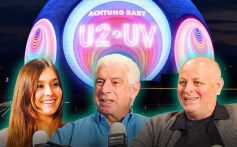
Trending on Billboard
The U.K. government hopes to decrease the price of resale tickets by an average £37 per ticket ($48 USD), according to a new report released released Wednesday (Nov. 19) in which it outlined its plan to outlaw ticket resale above face value.
According to a memo outlining the new rules, “Music and sport fans will no longer be ripped off on the ticket resale market thanks to new measures which will destroy the operating model of ticket touts,” also known as scalpers. The memo, released by the country’s Department for Business and Trade and Department for Culture, Media and Sport, adds that Prime Minister Keir Starmer’s government will make it “illegal for tickets to concerts, theatre, comedy, sport and other live events to be resold for more than their original cost.” The news was first reported by multiple U.K. outlets on Monday (Nov. 17) prior to the memo’s release.
Related
The new rules effectively make ticket resale above face value — defined as “the original ticket price plus unavoidable fees, including service charges” — illegal. The law limits the service fees that resale sites can charge and requires platforms like StubHub and Viagogo “to monitor and enforce compliance with the price cap.” The law also bans fans and resellers from buying more tickets than they are legally entitled to purchase during an initial ticket sale.
The U.K. government’s website features supportive quotes from politicians, music managers and artists about the bill, including U.K. Business Secretary Peter Kyle, who said the legislation taking on scalpers was meant to “smash their model to pieces and make sure more fans can enjoy their favourite stars at a fair price.”
In her own statement, U.K. Culture Secretary Lisa Nandy compared ticket scalpers to “a shadow industry, acting without consequence” while Dan Smith of the band Bastille described the legislation as “a good step towards protecting music fans from being ripped off.”
The new rules apply to both ticket resale platforms and social media sites where fans buy and sell goods. Violating the new regulations, according to the government, could result in large financial penalties from the U.K.’s Competition and Markets Authority (CMA).
Related
“Government analysis suggests that these measures could save fans around £112 million annually [$146 million USD], with 900,000 more tickets bought directly from primary sellers each year,” the government’s website reads.
The law is meant to build on a development from September in which the Competition and Markets Authority secured commitments from Ticketmaster to give U.K. fans 24 hours’ notice if Ticketmaster plans to use tiered pricing and provide clearer information about how the company’s online queues work, among other measures.
“The CMA’s enforcement action in this case, and the measures agreed with Ticketmaster, send a clear message to all ticketing websites that fans must have access to clear and timely pricing information with accurate ticket descriptions, especially where there are different pricing models and queues in play,” the government’s website reads. “In the future, the CMA will be able to respond even more swiftly and robustly to breaches of consumer law.”
The new legislation drew both praise and condemnation from different corners of the music industry. U.S.-based pro-ticket resale group the National Association of Ticket Brokers warned in a statement that it does “not support efforts to thwart competition. We discourage laws that impose price caps that make it more difficult for ticketing companies to compete with one another.”
Related
Others were more supportive, with Chris Lipscomb, managing girector for AXS U.K., telling Billboard in a statement, “We strongly support the UK government’s efforts to strengthen safeguards around ticket resale, which align with AXS’s longstanding practices in support of fair fan access.”
Matt Kaplan, who heads up U.K. and EU operations for fan-to-fan exchange Tixel, said “the UK’s move to outlaw touting is a huge win for fans, artists and the wider industry, and we fully support this long-overdue reform. Tixel was built to tackle these exact problems, and after nearly a decade fighting for fair, transparent resale in multiple markets around the world, we’re proud to see a framework emerge that protects fans, restores trust and shuts out the bad actors.”
In a statement to Billboard, Nathaniel Marro with the National Independent Talent Organization (NITO) added, “We hope policymakers stateside are paying attention and that reining in predatory resellers is a global movement.” Also in a statement, Stephen Parker of the National Independent Venue Association (NIVA) called on “state lawmakers throughout the United States to follow the United Kingdom’s (UK) proposed ticket resale price cap.”
Trending on Billboard
The Oasis Live ‘25 Tour kicked off its Australian leg last week (Oct. 31), and it continues to dominate music headlines as the shows roll along.
In a landmark move for Australia’s live music sector, Victoria’s government shut down bulk ticket scalping for Oasis’ recent Melbourne shows (Oct. 31, Nov. 1-4) at the Marvel Stadium by designating them under the Major Events Act 2009. The act allows the Minister for Tourism, Sport and Major Events to formally declare events that then become subject to anti-scalping protections.Under this special declaration, it became illegal to advertise or resell tickets on platforms such as Viagogo and StubHub for more than 10% above the original face value; if they flouted these restrictions, scalpers could be fined between $908 and $545,000 (AUD). A subsequent report from the Herald Sun states that 180,000 tickets for the sold-out shows went to fans as a result of the government effectively shutting out scalpers.
Related
Oasis’ management applauded the news, saying it could set a new benchmark for fairness in the live music market. “It’s great to see Victoria’s Major Events Declaration doing exactly what it’s meant to — Viagogo can’t list our Melbourne shows — and that’s a huge win for real fans,” they told the Herald Sun.
“When the government and the live industry work together, we can stop large-scale scalping in its tracks,” they added. “We’d love to see other states follow Victoria’s lead so fans everywhere get a fair go.”
Before last week, Oasis had not performed in Australia in nearly two decades. After tonight’s (Nov. 4) final Melbourne gig, they’ll head to Sydney (Nov. 7 and 8), before performing across Argentina, Chile and Brazil, wrapping up proceedings in São Paulo on Nov. 23.
Earlier this month in the U.K., the country’s culture minister, Ian Murray, confirmed that the current Labour government will press ahead with plans for a price cap on resale tickets.
Related
An industry consultation that took place in January invited views from venues, promoters, fans and other parties on the proposed price, which ranged from no profit being permitted on any ticket to a mark-up of up to 30% of face value.
Writing in the Daily Record last month (Oct. 5), Murray said: “We asked a direct question — should the UK follow countries like Ireland, where resale profiteering is capped in law? The response from fans could not have been a clearer — ‘yes.’”
“So let me tell you what we’re doing,” Murray continued. “First, we will cap resale prices. No more outrageous mark-ups of 500% or 1,000%. We are examining a range of options, from face value to a reasonable uplift.”
UK Finance, which represents 300 financial services outfits including Lloyds, NatWest, HSBC and Barclay, has lobbied against the decision for fear of customers losing out in an unregulated market. Adam Webb of the Fan Fair Alliance, however, disputed these claims in an interview with The Times. “I would advise UK Finance actually speak to experts in those countries, rather than rely on the self-interested research of unregulated offshore websites who promote industrial-scale ticket touting and exploit British audiences,” he said.
Trending on Billboard Face value ticket exchange CashorTrade has added two major names to its leadership ranks as the fan-first ticketing platform continues to gain traction across the live music industry. Industry veterans Andrew Dreskin — best known as co-founder and former CEO of Ticketfly and TicketWeb — and Craig Snyder, formerly of Intellitix and […]
NIVA ‘25 — the fourth annual conference for the National Independent Venue Association, slated to take place June 22-25 in Milwaukee — is happening against the backdrop of some of the fiercest ticketing battles heating up around the country. According to NIVA executive director Stephen Parker, this year alone throughout the U.S., there have been nearly 70 bills introduced in almost 30 states pertaining to ticketing, and the conference is set to address the good, bad and the ugly amid the fight.
“Ticketing continues to be the singular focus,” Parker tells Billboard. “Ticketing is turning into the proxy battle in legislatures — federal, state and local — for the future of live performance.”
The conference will include panels such as “Battling Scalping Goes to Washington, D.C.”; “Turn the Tables: Make the Ticket Resale Market Work For You”; “How We Solve a Problem Like Chargebacks”; and ticketing network sessions, all of which will focus on different ticketing issues facing independent venues. The subject of ticketing will also be part of conversations about local and federal regulations and be weaved into various other panels.
Trending on Billboard
“This conference is an opportunity and a catalyst for us to come together, assess what’s happened this year — our wins and losses in states fighting against predatory resellers,” Parker continues, “and come out of this conference with a plan to make sure that any sort of anti-consumer policy that’s being pushed by predatory resale platforms and brokers, we have a renewed strategy to address it and make sure that the freedom that fans should have from deception and fraud continues to reign supreme.”
Poor ticket buying experiences are impacting fans’ desire to attend more shows and hiking prices so high that many can only afford a limited number of shows each year. And on the venue side, credit card chargebacks have become a major issue.
One of the conference discussions will be “what can we do to make sure that that credit card chargebacks don’t take us down,” Parker says. “Especially given that most of those chargebacks, it seems, are coming from predatory resellers that have sold the tickets and are just trying to maximize their profits that they’re making off the backs of small venues and independent artists.”
While the subject of ticketing will take center stage at the conference — which is being held across the city at different independent venues — the conversations will touch on many other topics. After every conference, NIVA reaches out to its 1,500 members and asks them what subjects they would like to see represented at the following year’s gathering — and the organization, through programming director Jamie Loeb, has managed work more than 100 issues that affect independent venue owners into this year’s program. Among them, NIVA ‘25’s programming will also address declining alcohol sales, the purpose of middle agents, the performing rights and licensing landscape, marketing, and breaking through in the attention economy.
“If I were to say what the theme of this conference [is], it’s ‘How do we break through?’” says Parker.
One of the key methods for breaking through is telling the story of independent venues and the impact they have on local communities, as well as globally. During the conference, NIVA plans to unveil extensive data on the economics of independent venues, which the association hopes will help tell that story.
“I can tell you that it’s a mixed bag,” Parker says of the data. “There’s such promise and optimism and potential growth for the sector, but that growth and optimism is suppressed by the continued threats of predatory resale and monopolies and inflation. We’re going to talk about what we do moving forward in terms of how we address those monopolies.”
Attendees will be able to learn about best practices for dealing with government entities, from city councils to state legislatures, as well as hear about how other countries are moving to save their own cultural spaces.
The association will also use the conference to detail the expansion of its collective bargaining agreements. While NIVA introduced its collective bargaining program nearly 18 months ago, its efforts are continuing to expand.
“At least a quarter of our members have taken advantage of this program, either for discounts for food, discounts for equipment, discounts for sound and lighting. We’re thinking beyond just the physical and going to services and fees and things that every venue has to pay every day,” says Parker. “We will be announcing some exciting new opportunities for our members on that front to try to make the cost of doing business lighter for them.”
NIVA ‘25 kicks off this Sunday with an opening keynote from My Morning Jacket’s Jim James. Other discussions will include producer Jimmy Jam, former Capitol Music Group CEO Michelle Jubelirer and High Road Touring founder Frank Riley. For more information on NIVA ‘25, head here.
Critics of the secondary ticket business are warning that an epidemic of misleading offers on sites like StubHub and Vivid Seats are eroding consumer confidence in the live event ticket business, and they’re asking for lawmakers to intervene. Longtime music managers like Randy Nichols with the band Underoath say online markets are allowing resellers to list tickets to events that haven’t gone on sale yet — from the 2026 World Cup to David Byrne’s upcoming tour — and reap huge profits from fans who think they are buying legitimate tickets to major sporting events and concerts.
Speculative ticketing exists because of legal loopholes, Nichols says, as well as hundreds of millions of dollars spent on Google advertising and fan naivete. For Byrne’s fall Who is the Sky tour, for example, tickets don’t go on sale until mid-June, but ads for tickets on sites like StubHub and Vivid Seats began popping up seconds after it was announced. On Stubhub, front-row tickets for his Nov. 20 show at L.A.’s Dolby Theater were selling for about $1,100.
Trending on Billboard
Often, the seller of these tickets will only procure them after someone has agreed to buy them, and often the seller will wait until a few days or weeks before the show to buy the tickets, knowing the price almost always goes down closer to the show date. StubHub doesn’t disclose that the person listing these tickets doesn’t have them in their possession.
“There’s even a hashtag scalpers like to use to make this point titled #itpaystowait,” Nichols says. “The longer they wait, the more profit the scalper makes.”
Now, Nichols and groups like the National Independent Venues Association and the National Independent Talent Organizations are lobbying hard at both the state and federal level to make such practices illegal. While critics have had success in Maryland passing legislation banning speculative ticketing, lawmakers in New York state recently gutted a bill that would have outlawed it there. Officials like NITO executive director Nathaniel Marro are also worried about federal legislation like the TICKET Act, which originally had language banning the practice but has since been altered with a legal loophole that allows for speculative ticketing as part of a concierge service provided by sites like StubHub and Vivid Seats.
“Think of it like your favorite grocery delivery service — but for incredible experiences,” Vivid Seats explains on its site. “You cart your selections; we’ll handle the shopping.”
Marro said these sites don’t make clear to fans what they’re buying; many think they’re buying a ticket, not paying someone to buy a ticket that they themselves could get much cheaper if they shopped around on their own.
“That’s the irony — many fans don’t realize that they could buy these tickets themselves,” Nichols tells Billboard. “The fan is tricked because most begin the process of buying tickets on sites like Google, where secondary sites spend hundreds of millions on deceptive ads and websites to trick consumers into thinking they’re buying tickets directly from the box office.”
Nichols says overcharging the customers means less money for fans to spend and notes that it’s often the box offices that have to deal with customer service problems. And while it’s common for the price of a ticket to go down over time, there are exceptions: with Taylor Swift’s Eras Tour, sky-high demand made it impossible for some scalpers to fulfill their orders at the price they charged the customer. While some brokers fulfilled the orders at a loss to avoid being penalized by Stubhub, others simply cancelled orders, leaving fans without tickets having spent money on travel and hotels.
Nichols and Marro worry about the problems speculative ticketing will cause for major sporting events like the 2026 FIFA World Cup, which is taking place across North America next summer. Tickets for the global soccer tournament have not yet gone on sale, but hundreds are listed across Stubhub and Vivid Seats. There’s even a listing for tickets to sit on the pitch during the final championship match on July 19, at MetLife Stadium, for $1.1 million.
While it’s unlikely someone would pay that much money on StubHub for a World Cup ticket, even to the final championship game, the worry is that brokers will flood the site with speculative listings and cause a shortage of actual tickets, leaving some fans who traveled halfway around the world without their tickets.
Stephen Parker, executive director of NIVA, says his group has made progress at the state level outlawing the practice, but is worried that federal legislation protecting it as a concierge service could keep it legal for decades. Another concern is that the legislation protecting speculative tickets could quietly be added to Trump’s so-called “Big Beautiful Bill” and passed without any debate. “Lawmakers understand the issue but we’re up against a well-funded lobby,” Parker says. “The concern is that much of the progress we made at the state level will be lost with federal legislation.”
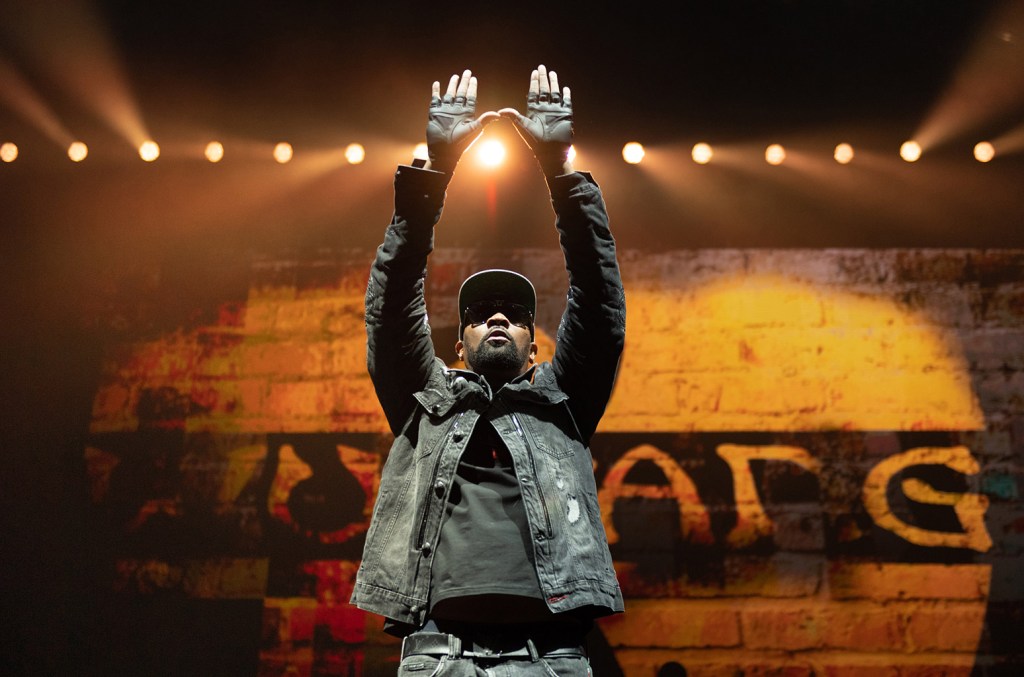
For Wu-Tang Clan superfans with money to burn, snagging a premium ticket for their upcoming tour won’t just buy killer seats, but gain them entry to an exclusive pre-party offering an immersive look at the kung-fu and iconography of the famed Staten Island hip-hop collective.
“We’re really being thoughtful from a pricing perspective,” Ben Duvdevani, co-founder of One More Time VIP, says of the Shaolin Temple Preshow Party ticket package, which offers entry to a time capsule-style exhibit showcasing rare Wu-Tang fan memorabilia and 3D video projections of classic films like The 36th Chamber of Shaolin and Five Deadly Venoms that inspired albums like Enter the Wu-Tang (36 Chambers) and Wu-Tang Forever.
“Packaging premium seats with these programs is enticing for the fan and helps push inventory. It helps push the bots out of purchasing premium inventory” and, he adds, “helps conversion for VIP.”
Trending on Billboard
The Shaolin Temple package is just one example of the lucrative VIP concert business in 2025, which is poised for a comeback thanks to a new generation of fans looking to invest in artist-centric experiences.
“There’s a ton of business out there because there are so many artists on the road right now, and so many artists at all levels trying to create something memorable for their fans,” adds Duvdevani, whose company is handing VIP packages for about 300 tours this year including Shaboozey, Sabrina Carpenter, Teddy Swims and HAIM.
It’s an impressive feat for an industry hit hard by COVID-19. The VIP business was born in the 1990s thanks in part to the work of New Yorker Shelley Lazar — the beloved “Ticketing Queen” who convinced iconic artists like the Rolling Stones, Paul McCartney and The Who to let her build out premium offerings for diehard fans she came to know on a first name basis — and it continued to grow in the new millennium as touring exploded. By the early 2000s, most artists were offering fans some type of VIP product, from meet and greets to destination concerts, facilitated and produced by a new generation of VIP companies with names like Fresh Beats and CID.
Beginning in 2017, many of the VIP companies started to consolidate. Several of them came under the NFL-backed firm OnLocation, which was purchased in March 2020 by Endeavor — just weeks before the concert business shut down for more than a year during COVID-19. During the pandemic, one popular U.K. VIP and hospitality company, Pollen, was forced to file for bankruptcy and later dismissed most of their staff.
Many VIP executives used the pandemic period to leave Endeavor and begin serving out their non-competes. By 2022, a new crop of companies founded by these execs started popping up, including One More Time, which won the contract to build the Shaolin Temple Preshow Party for Wu-Tang Clan’s upcoming Final Chapter North American arena tour. “It’s a bespoke preshow activation, where there’s going to be some surprises and a really special experience for fans,” Duvdevani tells Billboard of the exhibit that was created for the group’s 27-city tour. The Shaolin Temple pre-party is being packaged with front section floor tickets and priced at $740 a piece all-in.
VIP conversion has become increasingly common as more artists embrace platinum ticket pricing and higher prices for front row seating inventory as a response to secondary ticketing prices. Coupling these high-end tickets with VIP add-ons has become an important way to move aggressively priced inventory.
That need has led to one major change in how VIP packages and fan clubs are operated. Prior to the pandemic, many VIP companies operated ticketing systems that pulled tickets off the Ticketmaster or AXS platform, a practice that has largely ended.
“We want to put our best foot forward to make sure everyone’s winning, so we’re not taking anything off platform,” Duvdevani says. “Promoters are still getting the sale, and we’re also being mindful of that inventory. We don’t want to hold up a sell-out.”
Eddie Meehan got his start running VIP access company A Wonderful Union in the early 2000s before eventually selling to OnLocation and subsequently launching Please & Thank You. Meehan said his new company’s clients include Backstreet Boys, Alice Cooper, Melissa Etheridge and Peso Pluma.
“You have to be creative because many artists simply aren’t interested in doing meet and greets, it’s very taxing,” says Meehan, noting that he’s found success creating activations for artists like Aimee Mann, who offered VIP package holders a preshow soundcheck performance with songs not performed during the concert. Fans of another Please & Thank You client, *NSYNC, were invited to a restaurant for a private dumpling making party.
“We’ve had a lot of success bringing in brands to underwrite some of these events, which means more money in the pocket of the artist,” says Meehan, who has struck deals with Amazon Music and eBay Motors. “I tell brands they won’t get the same exposure to 600,000 fans they would get on a tour, but they do get access to 3,000 diehard, loyal fans who will evangelize your brand.”
Duvdevani added that VIP offerings shouldn’t be limited to established artists, pointing to newcomer Jessica Baio, a 23-year-old singer-songwriter who hired One More Time to run a VIP meet and greet program for her first headliner club tour.
“I feel like such an important part of going and performing live is also getting to meet people face to face,” Baio tells Billboard. “It’s something I wanted to offer to people and it’s just one of my favorite parts of the night, getting to physically hug people and meet them in person and allow them to share why my songs have touched them.”
While young artists like Baio have found success with a meet and greet program scaled to fit their tours, VIP industry luminary Dan Berkowitz, who is widely recognized with having helped create the VIP business through his firm CID, which he sold in 2016, says artists should only offer VIP experiences to fans if those experiences promote an “authentic connection.”
If the artist is committed to making the experience work, says Berkowitz, who launched his new company, 100x Hospitality, in 2022, there’s always potential for success.
“There is always going to be a strong demand for compelling experiences and people are always going to want to feel connected to the music that they love and to each other,” he says.
Ticketing platform Seated is being re-acquired by its founders, David McKay and John Griffin, four years after it was acquired by intimate live experience producer Sofar Sounds. McKay will lead the company’s return to independence as CEO.
Seated — dubbed an artist-first ticketing platform — was launched in 2017 to empower artists to take more control of their ticketing by enhancing tour listings for artist websites; it has since evolved into a central pillar of many major tours’ marketing and ticketing efforts. The platform’s offerings have now expanded to include SMS-based presale registration, audience-building and pixeling for ad strategy, official waitlists for sold-out shows, and direct-to-fan ticketing. Seated has come to work with big-name artists including Billie Eilish, Post Malone, Olivia Rodrigo, Lizzo, Eric Church, John Mayer, Morgan Wallen, Ed Sheeran, Bruno Mars and Gracie Abrams in recent years.
“When we sold the company in February 2021, it was a very different time [for live events], and our vision of what a combined Seated and Sofar would become drastically changed once the vaccines came out. Our business was clearly moving in a different direction than Sofar,” says McKay. “To their credit, [Sofar] continued to support us and we stayed a fully independent operating team inside of Sofar for those four years, which actually made this a very clean split.”
Trending on Billboard
The two entities began discussing a split when former Sofar Sounds CEO Jim Lucchese departed the company in 2024 to become the president of Berklee College of Music. Lucchese was replaced by former Atlas Obscura CEO Warren Webster, who McKay says is a “breath of fresh air for Sofar” but diverges from Seated’s goals of working with arena and stadium touring artists.
“Seated has achieved remarkable growth under Sofar Sounds’ ownership these last four years, becoming a vital partner to some of the biggest artists in the world,” Webster said in a statement. “We’re proud to have been part of that story, and as Sofar focuses on the increasing demand in our communities for live experiences, we’re thrilled that Seated will continue to grow with its founders at the helm.”
For the founders, the reacquisition is about doubling down on building tools for artists to sell tickets directly and develop stronger connections with their fans. The platform has recently done direct-to-fan ticketing for Noah Kahan, Shawn Mendes and Goose, while artists like Brandi Carlile, John Legend and Nathaniel Rateliff have used Seated to sell their own presale tickets, giving them more control over the ticketing experience and fan data. Seated has also helped artists use identity verification for resale and waitlist ticketing, reducing the number of tickets that end up with brokers.
Over the past year, the biggest residencies at Sphere in Las Vegas — including Eagles, Dead & Company and Kenny Chesney — also used Seated for data capture, demand insights and SMS presale registrations.
With ticketing being a hot-button issue in the last few years, McKay says he is excited to be independent again so that Seated can focus more on helping artists capture their fan data. Rather than spending all of their tour marketing on directing fans to ticketing platforms where they have to wait for a specific time for an onsale, McKay wants artists to be able to give their fans actionable items that get them closer to securing tickets.
“When tickets are not on sale yet, fans can sign up for reminders to get tickets, and when tickets sell out, we open up the fan waitlist,” McKay says, and all that fan data goes back to the artist.
“All the ticketing companies that you know and love — or don’t — are built with the tools to service their customers, which are the venues,” McKay says, adding that major ticketing companies are investing in box office computers, scanners and season ticket technology for sports teams. “Ticketing companies as a whole, the artist isn’t their customer.”
After playing Fenway Park in Boston, Kahan was set to perform at a local Vermont venue with only 5,00 tickets available. Instead of making fans rush to an onsale (where bots are the quickest to the tickets), the company had fans sign up with their information and their price range, and Seated was able to sort through to make sure all buyers were authentic fans. If fans needed a refund, they could click a button to return the ticket, and it would go to another fan on the waitlist. Fans who did not want a refund for their ticket could donate the money they spent to Kahan’s charity, with McKay stating that 15% of those who wanted a refund did so.
“That’s the biggest difference between an artist-led ticketing platform and a venue-led ticketing platform,” says McKay.

Live Nation is asking the U.S. Supreme Court to overturn a ruling last year that said the concert giant couldn’t enforce “opaque and unfair” arbitration agreements against ticketbuyers, warning the justices that the scathing ruling “creates massive uncertainty.”
The decision, issued in October by a lower court, said the contracts Live Nation had forced concertgoers to sign – requiring them to resolve disputes via private arbitration — were “so dense, convoluted and internally contradictory” that they were “borderline unintelligible.”
But in a petition to the Supreme Court this week, Live Nation says that the decision must be reversed, warning it would have “far-reaching consequences” for how arbitration works and could potentially cause massive headaches for companies that have long relied on such agreements.
“If allowed to stand, the decision below will enable mass arbitration plaintiffs to continue their abusive strategy of racking up procedural costs to the point of forcing the defendant to capitulate to a settlement, rather than proving their allegations,” Live Nation’s lawyers write. “These highly disruptive consequences reinforce the need for review.”
The appeal to the Supreme Court comes in a class-action lawsuit accusing Live Nation of violating federal antitrust laws by monopolizing the market for concert tickets and engaging in “predatory” behavior. Filed in 2022 on behalf of “hundreds of thousands if not millions” of ticket buyers, the case claims Live Nation and Ticketmaster abused their dominance to charge “extraordinarily high” prices to consumers.
Faced with those allegations, Live Nation argued that fans had waived their right to sue in court when they bought their tickets because they had signed arbitration agreements — a common requirement when purchasing tickets and other services from many companies.
In rejecting that argument in October, the U.S. Court of Appeals for the Ninth Circuit ruled that Live Nation’s agreements were “unconscionable and unenforceable” since they would make it “impossible” for fans to fairly pursue claims against the company.
“Forced to accept terms that can be changed without notice, a plaintiff then must arbitrate under … opaque and unfair rules,” the appeals court wrote at the time. “The rules and the terms are so overly harsh or one-sided as to unequivocally represent a systematic effort to impose arbitration as an inferior forum.”
The ruling described Live Nation’s agreements in scathing terms, calling them “so dense, convoluted and internally contradictory to be borderline unintelligible” and “poorly drafted and riddled with typos.” The terms were so confusing, the court said, that Live Nation’s own attorneys had “struggled to explain the rules” during a court hearing.
The criticism centered on Live Nation’s decision to alter its terms of use to require fans to submit to “novel and unusual” procedures for “mass arbitration.” That new process, offered by an upstart arbitration firm called New Era ADR, was aimed at handling many cases at once rather than individually, which Live Nation believed was necessitated by aggressive tactics from lawyers representing huge numbers of concertgoers.
But in rejecting that new process, the Ninth Circuit said Live Nation was essentially trying to have its cake and eat it too: “Defendants sought to gain in arbitration some of the advantages of class-wide litigation while suffering few of its disadvantages.”
In this week’s petition to the Supreme Court, it was Live Nation’s turn to level criticism – calling the Ninth Circuit’s ruling a “deeply flawed decision” that exemplified the kind of “judicial hostility” to private arbitration that’s prohibited under federal law.
“The Ninth Circuit’s decision below flouts [federal arbitration law], defies this court’s precedents, and threatens to block sensible measures for addressing the new phenomenon of mass arbitration filings,” the company’s lawyers write.
The plaintiffs in the case will file a response in the weeks ahead, and the justices will decide whether to take the case at some point in the next few months. Reps for both sides did not immediately return requests for comment.

 State Champ Radio
State Champ Radio 